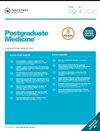双相情感障碍、重度抑郁症和自杀与弓形虫有关吗?血清分子病例对照研究。
IF 2.8
4区 医学
Q1 MEDICINE, GENERAL & INTERNAL
引用次数: 0
摘要
目的:潜伏刚地弓形虫(T. gondii)感染对双相情感障碍(BD)、重度抑郁症(MD)甚至自杀未遂(SA)是否有易感作用一直存在争议。这个猜想仍然不清楚,因为缺乏关于弓形虫如何操纵大脑和行为的证据。方法:我们调查弓形虫感染对伴有或不伴有SA的BD和MD患者的影响,并与年龄、性别和省份匹配的健康对照(hc)进行比较,同时进行血清学和分子评估。我们对147名BD患者、161名MD患者和310名hc患者进行了前瞻性评估。结果:BD、MD、SA、HC血清弓形虫阳性率分别为57.1%、29.2%、64.8%和21.3%。二元logistic回归分析显示,弓形虫免疫球蛋白G (IgG)阳性可能是BD的重要倾向因子(OR = 3.52;95% ci [2.19-5.80];结论:我们的研究结果有力地支持了潜伏性弓形虫感染可能与BD和SA病因学相关的可能性,尽管这种联系尚不明确。本文章由计算机程序翻译,如有差异,请以英文原文为准。
Are bipolar disorder, major depression, and suicidality linked with Toxoplasma gondii? A seromolecular case-control study.
ABSTRACT Objective The existence of predisposing effects of latent Toxoplasma gondii (T. gondii) infection in bipolar disorder (BD), major depression (MD), and even suicide attempt (SA) has long been debatable. This conjecture remains unclear because there is a lack of evidence regarding how T. gondii manipulates the brain and behavior. Methods We investigated the influence of T. gondii infection on BD and MD patients with or without SA compared to age-, sex-, and province-matched healthy controls (HCs) concurrently with serology and molecular-based evaluations. We prospectively assessed 147 volunteers with BD, 161 with MD, and 310 HCs. Results T. gondii seropositivity rates were 57.1% for BD, 29.2% for MD, 64.8% for SA, and 21.3% for HC. Binary logistic regression analyses revealed that T. gondii positive Immunoglobulin G (IgG) status may be a prominent tendentious agent for BD (OR = 3.52; 95% CI [2.19–5.80]; p < 0.001) and SA (OR = 17.17; 95% CI [8.12–36.28]; p < 0.001), but not for MD (OR = 1.21; 95% CI [0.74–1.99]; p = 0.45). Nevertheless, the T. gondii DNA ratios determined by polymerase chain reaction (PCR) were linked to BD and MD. Conclusion Our findings strongly support the burgeoning interest in the possibility that latent T. gondii infection may be relevant to the etiology of BD and SA, although this connection remains ambiguous.
求助全文
通过发布文献求助,成功后即可免费获取论文全文。
去求助
来源期刊

Postgraduate Medicine
医学-医学:内科
CiteScore
6.10
自引率
2.40%
发文量
110
审稿时长
6-12 weeks
期刊介绍:
Postgraduate Medicine is a rapid peer-reviewed medical journal published for physicians. Tracing its roots back to 1916, Postgraduate Medicine was established by Charles Mayo, MD, as a peer-to-peer method of communicating the latest research to aid physicians when making treatment decisions, and it maintains that aim to this day. In addition to its core subscriber base, Postgraduate Medicine is distributed to hundreds of US-based physicians within internal medicine and family practice.
 求助内容:
求助内容: 应助结果提醒方式:
应助结果提醒方式:


